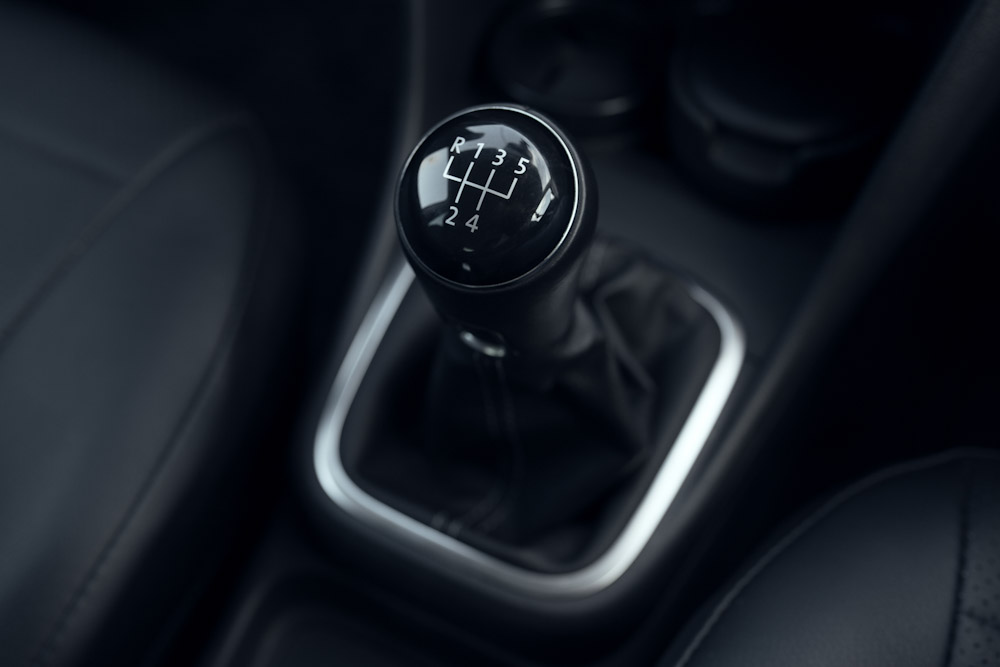
Manual transmissions are praised for supposedly lasting longer than their automatic rivals. But is that true?
Various factors affect the life of a vehicle’s transmission, but the short answer is that yes, a manual transmission tends to last longer than an automatic. Layton car repair pros from Master Muffler take a look at why.
Lifespan of a Manual Transmission
With the right driver and maintenance, a manual transmission could last up to 120,000 miles before requiring significant repairs or replacement. You may need to replace the transmission fluid or the clutch after logging that many miles through the school pickup lane, but the transmission itself should still be fine.
Whether or not your manual vehicle costs less initially than an automatic, the repair costs tend to be less expensive over time. You’ll spend less maintaining a manual transmission because there are fewer hydraulic and electrical elements in a manual compared to an automatic. And before automatic vehicles developed more sophisticated transmissions for better shifting, a manual boasted better fuel economy. These days, a manual may only get one more mile per gallon (mpg) than its automatic counterpart.
A manual transmission vehicle usually lasts longer than an automatic, but how can you improve the likelihood that you’ll still be cruisin’ in your manual Honda Civic Sport Hatchback ten years from now?
Tips for Prolonging the Life of a Manual Transmission
If you want your manual to live up to the hype and last longer than an automatic, there are some driving tips for prolonging its life. Master Muffler’s Layton car repair team recommends the following.
Use The Right Stuff
Refer to your owner’s manual for the right transmission fluid type and grade. This fluid assists with reducing gear slip when shifting. It also helps transfer heat, generated from the gears, reducing wear and tear. Also, if your transmission is leaking fluid and you don’t address it, you could create more gear slipping problems. No one likes to be deprived of fluids, and that even extends to some inanimate objects such as transmissions.
Depress the Clutch
You shouldn’t depress your friends, but you should fully depress the clutch pedal while shifting gears. Failure to fully depress the clutch pedal with your foot when shifting is called slipping the clutch. This habit can add unnecessary strain on the clutch, causing overheating. Go ahead and push that pedal all the way to the medal.
Shift without Force
Only Jedis should use force in their daily lives. When it comes to shifting gears in a manual transmission, there should be no force about it. Moving the gear shift should be a smooth and quiet process. If you can hear the gears grinding when you attempt to move from first to second, there may be something wrong with your technique. Instead of jamming the gear shift forward, backward, and side-to-side, take your time to get to know the gears and where they’re located. When you’re familiar with the pattern, you can more easily glide the gear shift into the next gear, whether you’re accelerating, slowing down, or heading into reverse.
Downplay the Downshift
Are you in the habit of downshifting (changing to a lower gear) in order to slow your roll? If so, you’re not doing your manual transmission any favors. Instead of engine braking, it’s a better practice to use the brakes to come to a stop, rather than your transmission. If you shift into neutral and then use the brakes, it can be even better for the transmission.
Drive Responsibly
If you want your manual transmission to fulfill its potential, find the happy medium between driving as if your grandma is in the back, and driving on the Nascar track. One of the reasons manuals tend to last longer is because drivers can control the amount of shifting. If, however, you get a little trigger happy with the gear shift, you’re compromising potential fuel economy and the lifespan of the transmission. It may be tempting to rev the engine or drop the clutch for an aggressive acceleration from the stoplight, but chances are your sedan isn’t equipped for such maneuvers. Leave aggressive driving to the professionals and the vehicles built for the strain.
If you’re among the estimated 1% still purchasing manual transmissions vs automatics, we salute you and we’re here for you. Schedule Layton car repair by contacting Master Muffler online HERE, or giving us a call at 801-663-7420.
Related Posts
Key Takeaways On average, passenger vehicle tires last 40,000 to 60,000 miles, depending on type, driving habits, and maintenance. Replace tires when tread depth reaches 2/32”, if damaged, or older than 10 years. Regular rotation, alignment, and proper inflation extend tire life. Aggressive driving, poor roads, and harsh weather shorten tire lifespan. Take advantage [...]
When you think about car maintenance, you probably focus on oil changes, tire rotations, and maybe even brake pad replacement. But what about your brake fluid? If you’ve ever wondered, “What does brake fluid do?” or “Why is brake fluid important?”, you’re not alone. Brake fluid might not be the most talked-about part of [...]
Is that high-pitched squeal from your brakes driving you—and everyone else—crazy? Don’t ignore it. Squeaky brakes aren’t just annoying, they’re your car’s way of saying something needs attention. Whether you're cruising through Salt Lake City or winding up Idaho’s mountain passes, here’s what’s likely going on, how you can fix it, and when it [...]





